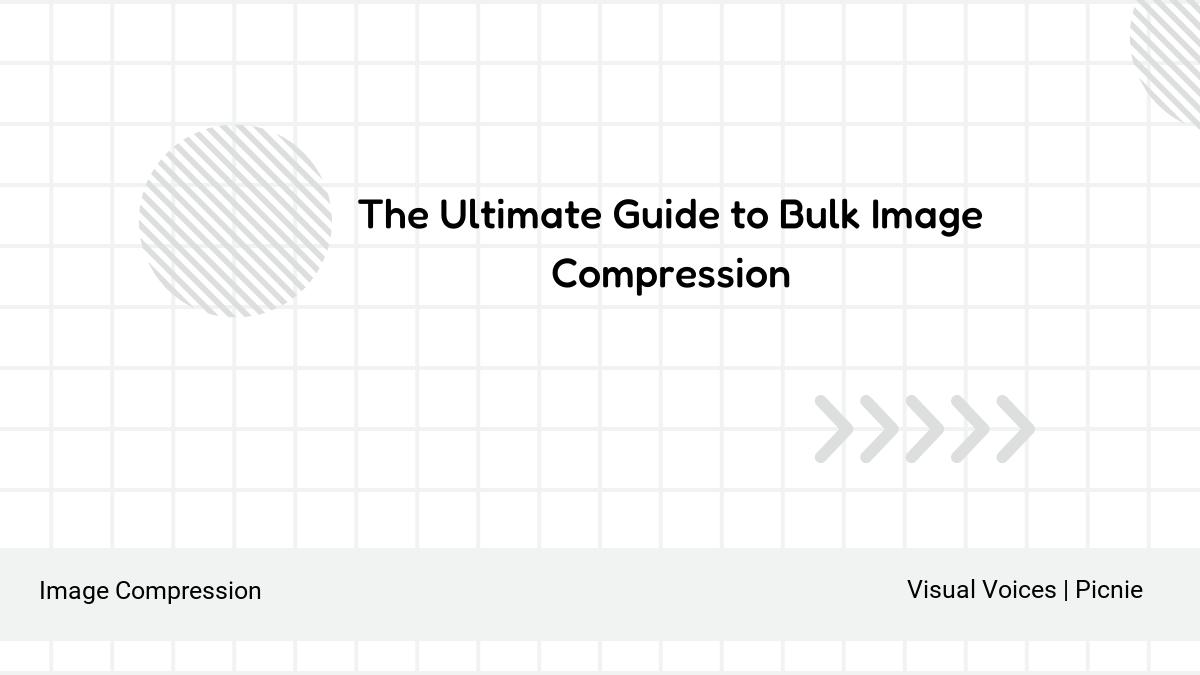The Ultimate Guide to Bulk Image Compression
In today's digital world, images are an essential component of any website or online platform. However, large image files can slow down a website's loading time, leading to a poor user experience and lower search engine rankings. This is where bulk image compression comes in, allowing you to reduce the size of your images without sacrificing quality.
In this ultimate guide, we will dive into everything you need to know about bulk image compression, from its benefits to the different compression techniques and tools available. So, let's get started!
Benefits of Bulk Image Compression
Before we dive into the specifics of bulk image compression, let's take a look at some of the benefits it offers:
- Faster website loading times: Large image files can significantly slow down website loading times, leading to a poor user experience. By compressing your images, you can reduce their size, making your website load faster and improving user experience.
- Lower storage requirements: Compressed images take up less storage space, allowing you to store more images on your website or server without having to worry about storage limitations.
- Improved SEO: Google considers website loading speed as one of the factors when ranking websites. By compressing your images, you can improve your website's loading speed, leading to better search engine rankings and more traffic.
Techniques for Bulk Image Compression
There are several techniques that you can use for bulk image compression, including:
Lossless Compression
Lossless compression is a compression technique that reduces the size of an image without sacrificing any quality. This means that the compressed image will look exactly like the original image, with no loss of detail or resolution. Lossless compression is ideal for images with text or graphics, as it preserves the sharp edges and fine details of the image.
Lossy Compression
Lossy compression, on the other hand, reduces the size of an image by sacrificing some quality. This means that the compressed image may look slightly different from the original, with some loss of detail or resolution. Lossy compression is ideal for images with lots of colors or gradients, as it can significantly reduce the file size without sacrificing too much quality.
Format Conversion
Another technique for bulk image compression is format conversion. This involves converting your images from one format to another, such as from PNG to JPEG. Different image formats have different compression algorithms, and some formats are better suited for certain types of images than others. By converting your images to a more appropriate format, you can significantly reduce their size without sacrificing quality.
Tools for Bulk Image Compression
Now that we've covered the different techniques for bulk image compression, let's take a look at some of the tools you can use to compress your images:
Picnie
Picnie.com is a cloud-based image compression tool that allows you to compress multiple images at once. It offers both lossless and lossy compression options and supports a wide range of image formats, including JPEG, PNG, and GIF. It also offers REST APIs to compress bulk images within your tech infrastructure.
TinyPNG
TinyPNG is a popular image compression tool that uses a lossy compression algorithm to reduce the size of your images. It supports both PNG and JPEG formats and allows you to compress up to 20 images at once.
ImageOptim
ImageOptim is a free, open-source image compression tool that is available for Mac users. It offers both lossless and lossy compression options and supports a wide range of image formats, including PNG, JPEG, and GIF.
Conclusion
In conclusion, bulk image compression is an essential technique for optimizing your website's loading speed and improving user experience. Whether you choose lossless or lossy compression or decide to convert your images to a different format, there are several tools available that can help you compress your images quickly and efficiently. So, start compressing your images today and start reaping the benefits of a faster-loading website, more storage space, and improved search engine rankings.
Remember to always test your compressed images to ensure that they maintain the necessary quality for your website or platform. With the right tools and techniques, bulk image compression can be an effective way to optimize your website's performance and improve your online presence.






